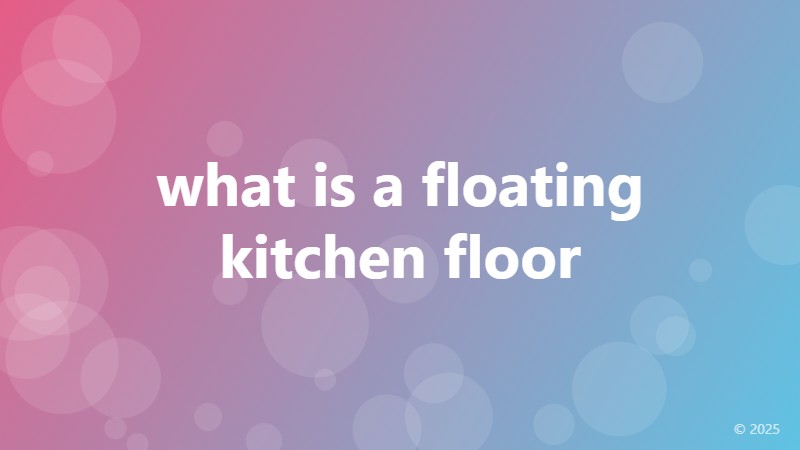what is a floating kitchen floor

Defining a Floating Kitchen Floor
A floating kitchen floor is a type of flooring installation method that has gained popularity in recent years, especially among homeowners who want to achieve a modern and sleek look in their kitchen. But what exactly is a floating kitchen floor, and how does it differ from traditional flooring installations?
The Concept of Floating Floors
In a traditional flooring installation, the flooring material is directly attached to the subfloor using adhesives, nails, or screws. However, a floating floor takes a different approach. Instead of being attached to the subfloor, the flooring material "floats" above it, allowing for a small gap between the two surfaces. This gap, usually around 1/4 inch, is crucial in providing room for expansion and contraction of the flooring material due to changes in temperature and humidity.
Benefits of a Floating Kitchen Floor
So, why would you want to install a floating kitchen floor? Here are some benefits to consider:
One of the main advantages of a floating floor is its ability to reduce noise. Because the flooring material is not directly attached to the subfloor, it reduces the transmission of sound, making your kitchen a more peaceful space.
Another benefit is its ease of installation. Floating floors are generally quicker to install compared to traditional flooring methods, which can save you time and money.
Floating floors are also more forgiving when it comes to subfloor imperfections. Because the flooring material is not directly attached to the subfloor, it can accommodate minor imperfections, such as unevenness or cracks.
Types of Flooring Suitable for a Floating Kitchen Floor
Not all types of flooring are suitable for a floating kitchen floor. However, some popular options include:
Laminate flooring is a popular choice for floating floors due to its durability and affordability.
Engineered hardwood flooring is another option, offering a natural and luxurious look.
Luxury Vinyl Tiles (LVT) are also a great choice, providing a waterproof and low-maintenance solution.
Conclusion
In conclusion, a floating kitchen floor is a modern and innovative way to install your kitchen flooring. With its numerous benefits, including noise reduction, ease of installation, and forgiveness of subfloor imperfections, it's no wonder why many homeowners are opting for this method. By understanding what a floating kitchen floor is and its benefits, you can make an informed decision when it comes to choosing the perfect flooring for your kitchen.